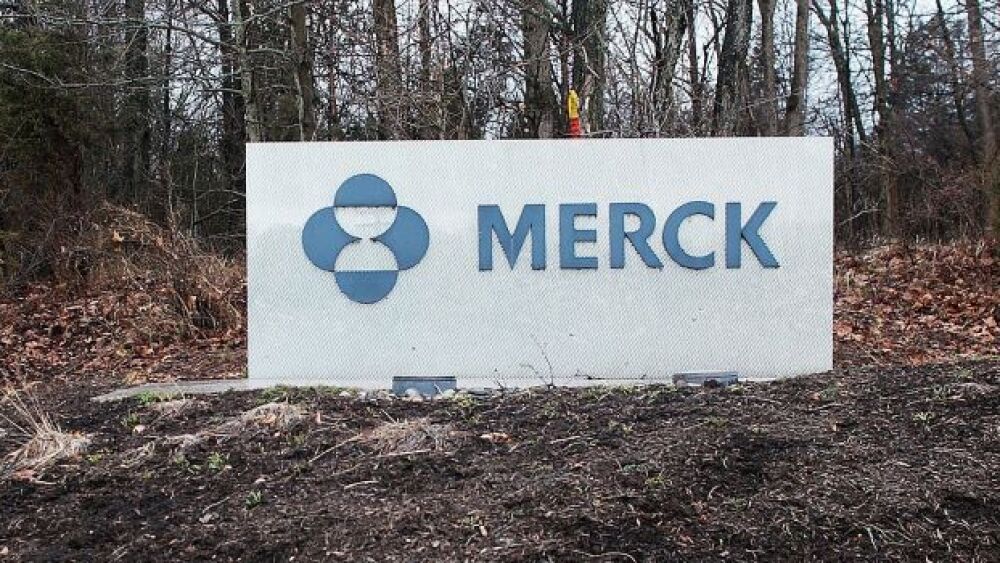Merck is eyeing another major label expansion for its flagship anti-PD-1 therapy Keytruda following an interim analysis of KEYNOTE-859 trial.
Courtesy of Chris Hondros/Getty Images
Merck is eyeing another major label expansion for its flagship anti-PD-1 therapy Keytruda. Tuesday, the pharma giant announced that an interim data analysis of Keytruda’s Phase III KEYNOTE-859 trial produced promising results.
The interim analysis evaluated Keytruda plus chemotherapy in patients with human epidermal growth factor receptor 2 (HER2)-negative locally advanced unresectable or metastatic gastric (stomach) or GEJ adenocarcinoma. If approved for this particular form of stomach cancer, Keytruda could rack up several hundred million in additional sales on an annual basis.
Last year, the anti-PD-1 therapy raked in $17.2 billion in global sales, making it the fourth best-selling pharmaceutical product in 2021.
The study yielded a statistically significant result on the study’s primary endpoint of overall survival, regardless of PD-L1 expression.
Additionally, Merck noted that the anti-cancer combo therapy hit the mark on the study’s key secondary endpoints, consisting of progression-free survival and overall response rate. Keytruda is currently approved by the FDA on accelerated basis as a treatment for first line locally advanced unresectable or metastatic HER2-positive stomach or GEJ cancer, when used in combination with Roche’s mega-blockbuster cancer therapy Herceptin (trastuzumab).
Stomach Cancer Landscape
Stomach cancer, the fourth-leading cause of death worldwide, has been a hotbed of pharmaceutical research in recent years. Even so, there is still a large unmet medical need for new treatment options for specific sub-types of the malignancy.
Underscoring this point, Dr. Eliav Barr, Merck’s senior vice president and head of global clinical development, noted in the press release that the results from the trial show Keytruda’s potential to improve survival beyond chemotherapy alone for these patients.
Merck is also evaluating Keytruda in other forms of gastrointestinal cancers. Specifically, the therapy is currently being trialed in KEYNOTE-811 as a treatment for first-line advanced HER2-positive gastric cancer and KEYNOTE-585 as a therapeutic option for patients with early-stage stomach cancer.
Lastly, Merck plans to explore Keytruda’s efficacy in advanced/metastatic stomach cancer in the LEAP-015 trial.





